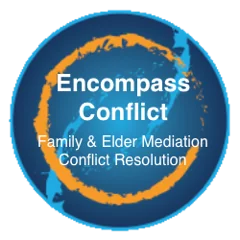Introduction
Parkinson’s disease and dementia are two neurological conditions that, more often than not, become intertwined in a complex relationship. It is a striking statistic that approximately 80% of Parkinson’s patients will develop some form of dementia. In this blog post, we will delve into the connection between Parkinson’s and dementia, focusing on Parkinson’s disease dementia (PDD) and how it profoundly affects the lives of those living with this dual diagnosis.
What is Parkinson’s Disease?
Parkinson’s disease is a progressive neurological disorder primarily known for its impact on motor functions. It is characterized by symptoms such as tremors, bradykinesia (slowness of movement), muscle rigidity, and postural instability. These symptoms result from the loss of dopamine-producing neurons in a specific brain region known as the substantia nigra.
Understanding Dementia
Dementia is a broad term encompassing various cognitive impairments that affect memory, thinking, and reasoning. Dementia can have various underlying causes. Alzheimer’s disease is the most well-known form of dementia, but there are several other types, including vascular dementia, Lewy body dementia, and frontotemporal dementia.
The Strong Connection Between Parkinson’s and Dementia
The significant statistic that approximately 80% of Parkinson’s patients will develop some form of dementia underscores the intricate relationship between these two conditions. While Parkinson’s disease is typically characterized as a movement disorder, it often leads to cognitive impairment in many individuals, giving rise to Parkinson’s disease dementia (PDD). Importantly, it’s essential to recognize that the onset and severity of cognitive symptoms can vary among those living with Parkinson’s.
Symptoms of PDD
PDD generally manifests in the later stages of Parkinson’s disease and is accompanied by an array of cognitive and behavioral symptoms. Common PDD symptoms include:
Memory Problems: Individuals with PDD often grapple with difficulties related to both short-term and long-term memory, making it challenging to remember recent events or past experiences.
Executive Dysfunction: This refers to struggles with tasks such as planning, decision-making, problem-solving, and multitasking.
Attention and Concentration Issues: People with PDD may experience difficulties focusing on tasks or conversations and find themselves easily distracted.
Visuospatial Impairments: PDD can interfere with an individual’s ability to perceive and interpret spatial relationships, making activities like navigation more challenging.
Diagnosis and Management
Diagnosing PDD can be a complex process, as its symptoms can overlap with other types of dementia. An in-depth evaluation by a neurologist or specialist is crucial to distinguish PDD from other conditions. The management of PDD typically involves a combination of strategies, including medication, physical therapy, and cognitive therapy. Medications may be prescribed to address both the motor symptoms of Parkinson’s and the cognitive symptoms of dementia.
Quality of Life and Support
Living with the dual diagnosis of Parkinson’s and dementia is undoubtedly challenging, not just for the individuals affected but also for their caregivers and families. Support groups, counseling, and resources are available to help people better understand and manage these conditions. Early intervention and a strong support network can significantly enhance the quality of life for those living with PDD.
Conclusion
The fact that approximately 80% of Parkinson’s patients will develop some form of dementia underscores the profound link between these two conditions. By recognizing the symptoms early, seeking timely diagnosis and intervention, and providing support, we can improve the quality of life for individuals grappling with Parkinson’s and dementia. Increased awareness and understanding of the challenges that come with these conditions are critical steps toward better management and support for those affected.


